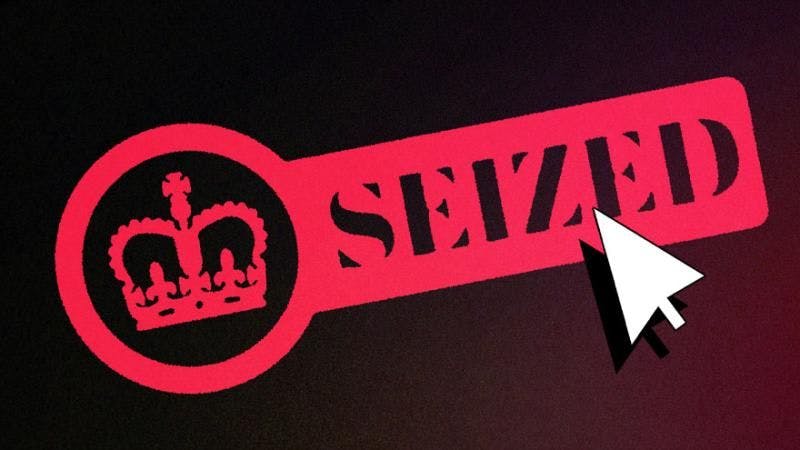U.K. Seizes NFTs in Fraud Probe as Authorities Hunt for Illicit Digital Assets
A U.K. agency seized NFTs in a criminal probe, a newsign that law enforcement officials are targeting digital assets.
By: Samuel Haig • Loading...
DeFi
In a move that demonstrates how digital assets are being targeted in legal cases, British authorities have seized three NFTs linked to a criminal fraud investigation, according to a Feb. 14 report in the BBC.
Her Majesty’s Revenue & Customs (HMRC), the equivalent of the IRS in Britain, seized three NFTs and roughly £5,000 ($7,800) worth of crypto assets as part of investigations into a suspected tax fraud scheme worth £1.4M.
The action comes a week after the U.S. Justice Department seized $3.6B in stolen Bitcoin and accused a married couple of laundering the proceeds of a 2016 hack of Bitfinex, a Hong Kong-based crypto exchange.
Fraud and Criminality
Nick Sharp, deputy director for economic crime at HMRC, said on his LinkedIn page that he believes this is the first time a U.K. law enforcement agency has impounded NFTs. He said the case “shows that [NFTs] can and will be seized when linked to fraud and criminality.”
The BBC reported that three suspects have been arrested as part of a probe into an alleged Value Added Tax (VAT) repayment fraud involving 250 fake companies. The group are described as having used “sophisticated methods” to conceal their identities including false addresses, unregistered mobile phones, and VPNs.
The case signals that law enforcement authorities and regulators are intent on casting a wide net on digital assets involved in wrongdoing. Just because NFTs are a new type of technology and asset class, that doesn’t mean they’re exempt from the rules. Graeme Fearon, special counsel at Moulis Legal, told The Defiant that existing criminal law in the U.S., the U.K., and Australia covers digital property.
“The general attitude that everyone’s taking by default is ‘We’ve got a framework and the framework fits’,” said Fearon, who works in Australia after practicing law in the U.K. for two decades. “It’s very exciting technology, but when it comes to it, it’s just something else to buy, sell, store, hodl — whatever you are going to do with it. You don’t need any particular new rules to cover that.”
Fearon, said that the courts can compel a suspect to hand over passwords and any other access information for digital wallets under threat of harsher sentencing.
“It’s an offense to refuse to comply with a court order,” he said. “In the U.K. and the U.S., people have been jailed for refusing to comply and refusing to cooperate.”
Sanction and Blacklist
The U.K. case is bound to highlight the rapidly developing role NFTs and other digital assets are playing in legal cases. Max Dilendorf, partner at New York-based Dilendorf Law Firm, told The Defiant that it is easy to seize digital assets in the U.S., even by parties in lawsuits.
In a recent blog post, Dilendorf noted that the U.S. government has recently been filing civil forfeiture actions against cryptocurrency wallets associated with criminal activities. Dilendorf described the move as “unprecedented” and “significant,” allowing the government to take action against targeted wallets “in the same way it is able to sanction and blacklist traditional bank accounts.”
Dilendorf also emphasized that the Treasury’s Office of Foreign Assets Control (OFAC) tracks the addresses of digital asset wallets “that are not allowed to transact or do business with any U.S.-based individuals or entities.” As such, suspects using NFTs could be added to OFAC’s list of Specially Designated Nationals And Blocked Persons (SDN).
Advertisement
Get the best of The Defiant directly in your inbox 💌
Know what matters in Web3 with The Defiant Daily newsletter, every weekday
90k+ investors informed every day. Unsubscribe anytime.